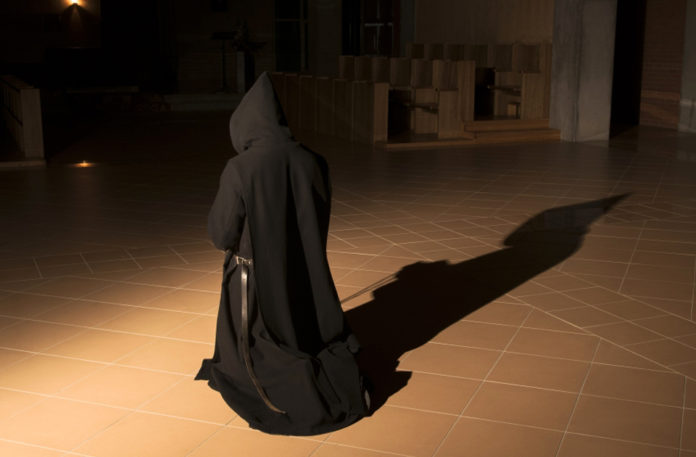What to say about a human being who possibly misled more other humans than any of his contemporaries? A taghut who promoted the worst sin, declared what is lawful as unlawful and what is unlawful as lawful, while people followed him? Should one weep for him? Indeed.
Muslims ought to recognize the enormity of the crime of disbelief and attributing a son to Allah the Most High.
The Qur’an says,
| “And they say, The Most Merciful has taken a son. You have done an atrocious thing. The heavens almost rupture therefrom and the earth splits open and the mountains collapse in devastation. That they attribute to the Most Merciful a son. And it is not appropriate for the Most Merciful that He should take a son. There is no one in the heavens and earth but that he comes to the Most Merciful as a servant.” [Maryam: 88-93] |
Their deeds are futile, while they were thinking otherwise:
| “Say: Shall we not inform regarding the greatest losers concerning their deeds? They are those whose efforts are wasted in the worldly life, whilst thinking that they were performing the best of actions.” [al-Kahf: 103-4] |
| Those who disbelieved – their deeds are like a mirage on a plain, in which a thirsty person thinks there is water; when he approaches it he finds nothing but he finds Allah before him and He repays him his account in full, as Allah is swift in taking account. [al-Noor: 39] |
The worthlesness of their hard labor is also explained in the following passage from Tafsir Ibn Kathir (of Surah al-Ghashiyah):
(Some faces that Day will be Khashi`ah) meaning, humiliated. This was said by Qatadah. Ibn `Abbas said, “They will be humble but this action will be of no benefit to them.” Then Allah says,
(Laboring, weary) meaning, they did many deeds and became weary in their performance, yet they will be cast into a blazing Fire on the Day of Judgement. Al-Hafiz Abu Bakr Al-Burqani narrated from Abu `Imran Al-Jawni that he said, ” `Umar bin Al-Khattab passed by the monastery of a monk and he said: `O monk!’ Then the monk came out, and `Umar looked at him and began to weep. Then it was said to him: `O Commander of the faithful! Why are you weeping’ He replied: `I remembered the statement of Allah, the Mighty and Majestic, in His Book,
(Laboring, weary. They will enter into Fire, Hamiyah.) So that is what has made me cry. ”’ Al-Bukhari recorded that Ibn `Abbas said,
(Laboring, weary) “The Christians.” It is narrated that `Ikrimah and As-Suddi both said, “Laboring in the worldly life with disobedience, and weariness in the Fire from torment and perdition.” Ibn `Abbas, Al-Hasan, and Qatadah all said,
(They will enter into Fire, Hamiyah) meaning, hot with intense heat.






















